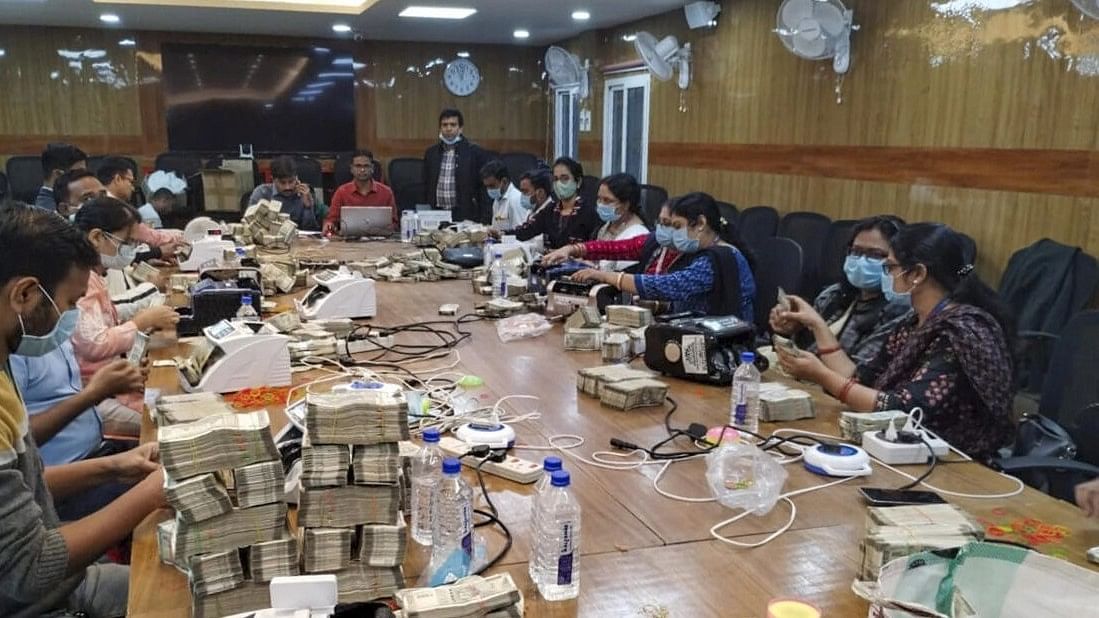
Counting of cash by officials on the 5th day of the Income Tax department raids against Odisha-based distillery and linked entities, in Ranchi.
Credit: PTI Photo
The search operation conducted by the Income Tax department at a country-liquor manufacturing unit in Odisha's Bolangir district has come to an end after six days. During the operation, the department recovered over Rs 350 crore in unaccounted cash and approximately 3 kilograms of gold, which is considered one of the largest seizures in recent times. The company was owned by the family of Congress MP Dhiraj Prasad Sahu, who resides in Jharkhand.
Now that the I-T operation has concluded, we take a look at procedures that follow unaccounted cash seizure.
Procedure
During the search operation conducted by tax officials at various business, official, and residential premises, a thorough examination is carried out on cash, financial documents, property papers, electronic devices, gold, and other items. The cash that is found is seized and counted in the presence of two independent witnesses, after which it is securely sealed.
Subsequently, the seized cash is transported to a national bank and deposited into an account maintained by the Income Tax department. In the specific case mentioned, an amount of Rs 351 crore has been deposited in the State Bank of India in Odisha, into the I-T Department's account known as the Provision Deposit (PD) account.
The probe into such cases is undertaken by the Investigation Unit of the Income Tax department. This unit meticulously examines all the details and books of accounts, and within 60 days, prepares an assessment report.
Once the assessment order is finalized, the individuals accused or suspected in the case are given opportunities to provide explanations regarding the source of their income. This entire process typically takes around 18 months, during which the agency considers the evidence gathered during the investigation as well as the income proof provided by the suspects. Based on these factors, a determination is made regarding the legality of the seized cash.
Tax Cut and Penalty
From the unaccounted cash that is seized, a deduction of 30 per cent is made as tax, and an additional 60 per cent is imposed as a penalty on the illegal cash.
Throughout the process, the suspects are also required to pay interest on the total amount that has been seized. Once the entire procedure is completed, if the suspect is eligible to receive any remaining funds from the seized amount, the Income Tax department will return the sum to them via a demand draft. However, if the I-T department is still owed money, a notice will be sent to the suspect requesting payment.